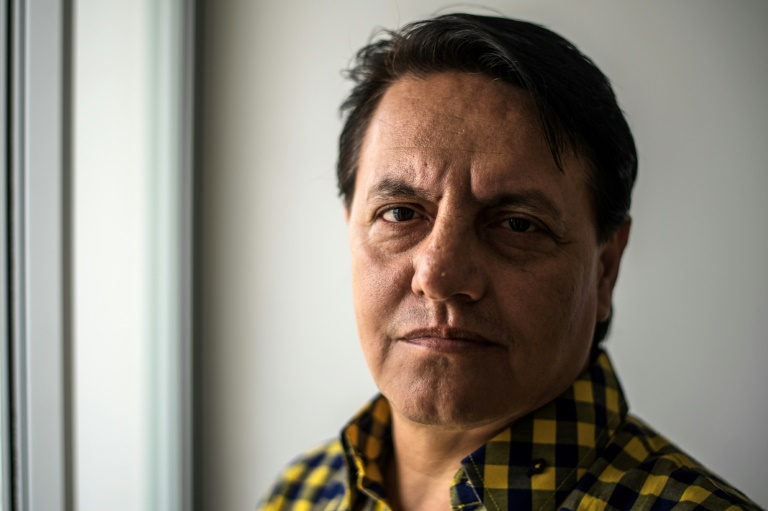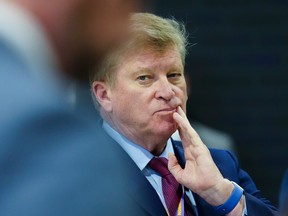AFP
Presidential candidate Fernando Villavicencio stood at the forefront of Ecuador’s anti-corruption struggle, denouncing irregularities in public contracts just days before being assassinated in the middle of the election campaign.
A journalist by profession, one of Villavicencio’s investigations exposed a vast graft network involving former president Rafael Correa.
Alongside colleague and friend Christian Zurita, he brought the former head of state and his government officials to justice for receiving bribes from businessmen.
Villavicencio nicknamed Correa “the fugitive” after the former president, who lives in Belgium, was sentenced in absentia to eight years in jail.
But his hard-hitting work meant Villavicencio also regularly fell foul of the courts.
Villavicencio fled to the Amazon rainforest after he was sentenced to 18 months in prison for insulting Correa in 2014, a verdict that drew condemnation from the Inter-American Commission on Human Rights.
Two years later, a judge ordered his incarceration for revealing secret information obtained by hacking into Correa administration e-mails in a bid to expose corruption in the oil sector.
On that occasion, he took refuge in Lima, Peru, until his return in 2017.
Villavicencio twice reported threats against himself and his team in the week before his death.
He was under police protection when he was assassinated while leaving an election rally in northern Quito.
“Despite the new threats, we will continue to fight for the brave people of our #Ecuador”, he wrote at the time on Twitter, which has been rebranded as X.
The 59-year-old was in second position in the latest Cedatos presidential polls with around 13% of the vote, behind Luisa Gonzalez (26.6%), a close associate of Correa.
The centrist candidate was running in his first presidential race alongside eight others preparing for the first round of the election on August 20, triggered by the dissolution of the Assembly in May by President Guillermo Lasso.
Villavicencio had pledged to build a maximum-security prison in the Amazon.
“My government will use a firm hand against violence, but we will mainly tackle unemployment,” he told reporters.
A native of the Andean town of Alausi, in the southern province of Chimborazo, he launched his crusade against corruption in the oil industry after working for the national company Petroecuador.
His role was to scrutinize the sector’s impact studies but he said his “work was against the oil industry”.
“What I was doing was investigating and recording the impacts of the oil industry,” he said.
He then devoted himself to journalism and uncovering corruption in the industry and in government.
Nicknamed “Don Villa” by his supporters, Villavicencio managed to win a seat as a deputy in the Assembly and the post of chairman of the Tax Commission.
From there he was able to push Lasso, who was threatened with impeachment by parliament for alleged corruption, into a corner.
Villavicencio’s final anti-corruption offensive was directed against former vice-president Jorge Glas, one of Correa’s ministers, and Petroecuador, for alleged illegal contracts enabling the awarding of 21 oil wells to foreign companies.






